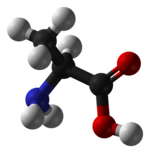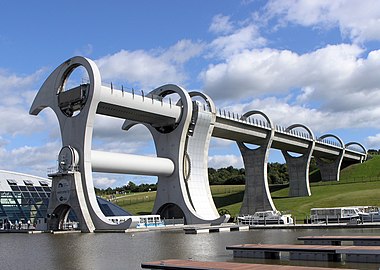Portal:Science
| Main page | Main topics & Categories | Related portals & WikiProjects | Things you can do |
Science portal
Science is a systematic discipline that builds and organises knowledge in the form of testable hypotheses and predictions about the universe. Modern science is typically divided into two or three major branches: the natural sciences (e.g., physics, chemistry, and biology), which study the physical world; and the behavioural sciences (e.g., economics, psychology, and sociology), which study individuals and societies. The formal sciences (e.g., logic, mathematics, and theoretical computer science), which study formal systems governed by axioms and rules, are sometimes described as being sciences as well; however, they are often regarded as a separate field because they rely on deductive reasoning instead of the scientific method or empirical evidence as their main methodology. Applied sciences are disciplines that use scientific knowledge for practical purposes, such as engineering and medicine.
The history of science spans the majority of the historical record, with the earliest identifiable predecessors to modern science dating to the Bronze Age in Egypt and Mesopotamia (c. 3000–1200 BCE). Their contributions to mathematics, astronomy, and medicine entered and shaped the Greek natural philosophy of classical antiquity, whereby formal attempts were made to provide explanations of events in the physical world based on natural causes, while further advancements, including the introduction of the Hindu–Arabic numeral system, were made during the Golden Age of India. Scientific research deteriorated in these regions after the fall of the Western Roman Empire during the Early Middle Ages (400–1000 CE), but in the Medieval renaissances (Carolingian Renaissance, Ottonian Renaissance and the Renaissance of the 12th century) scholarship flourished again. Some Greek manuscripts lost in Western Europe were preserved and expanded upon in the Middle East during the Islamic Golden Age, along with the later efforts of Byzantine Greek scholars who brought Greek manuscripts from the dying Byzantine Empire to Western Europe at the start of the Renaissance.
The recovery and assimilation of Greek works and Islamic inquiries into Western Europe from the 10th to 13th centuries revived natural philosophy, which was later transformed by the Scientific Revolution that began in the 16th century as new ideas and discoveries departed from previous Greek conceptions and traditions. The scientific method soon played a greater role in knowledge creation and it was not until the 19th century that many of the institutional and professional features of science began to take shape, along with the changing of "natural philosophy" to "natural science".
New knowledge in science is advanced by research from scientists who are motivated by curiosity about the world and a desire to solve problems. Contemporary scientific research is highly collaborative and is usually done by teams in academic and research institutions, government agencies, and companies. The practical impact of their work has led to the emergence of science policies that seek to influence the scientific enterprise by prioritising the ethical and moral development of commercial products, armaments, health care, public infrastructure, and environmental protection. (Full article...)
Selected article
Experiments have already been carried out in which quantum computational operations were executed on a very small number of qubits. Research in practical areas continues at a frantic pace; see Quantum Information Science and Technology Roadmap for a sense of where the research is heading. Many national government and military funding agencies support quantum computing research, to develop quantum computers for both civilian and national security purposes, such as cryptanalysis.
Selected picture
Selected biography
Wolfgang Ernst Pauli (April 25, 1900 – December 15, 1958) was an Austrian physicist noted for his work on the theory of spin, and in particular the discovery of the Exclusion principle, which underpins the whole of chemistry and quantum mechanics.
He seldom published papers, preferring lengthy correspondences with colleagues (such as Bohr and Heisenberg, with whom he had close friendships.) Many of his ideas and results were never published and appeared only in his letters, which were often copied and circulated by their recipients. Pauli was apparently unconcerned that much of his work thus went uncredited.
Did you know...
- ...that Scientists and Engineers for America is an organization focused on promoting sound science in government, and backing political candidates who support science and its applications?
- ...that the 2004 Christmas Eve Snowstorm was the most significant snow event for South Texas since 1895?
- ...that Stanford professor Kate Lorig developed a peer-led chronic disease self management course which is the basis of the Expert Patient Programme of the British National Health Service?
- ...that walking fish can actually skip, crawl, slither, and even climb trees?
- ...that the Thanksgiving 1984 Nor'easter deposited a 197-foot Venezuelan freighter in the backyard of a Palm Beach, Florida socialite, where it remained for several months?
Science News



